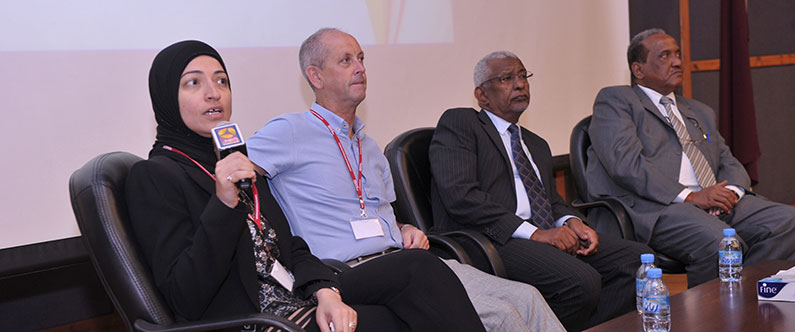WCM-Q seminar explores mental healthcare, the law, and patients’ rights
 Dr. Suhaila Ghuloum, senior consultant at the psychiatry department at HMC (far left), and the other presenters took part in an interactive Q&A with the audience s to respond to queries about the law pertaining to mental healthcare in Qatar.
Dr. Suhaila Ghuloum, senior consultant at the psychiatry department at HMC (far left), and the other presenters took part in an interactive Q&A with the audience s to respond to queries about the law pertaining to mental healthcare in Qatar.
The challenges of providing mental health services in a growing and diverse community were discussed at a seminar organized by WCM-Q and hosted by Hamad Medical Corporation (HMC).
The purpose of the Mental Health Care, Law and Patients’ Rights seminar was to bring together various stakeholders, including medical and health professionals, legal and social services, law enforcement and others, to find ways to work together to meet the mental healthcare requirements of Qatar’s diverse and growing community.
Dr. Sunanda Holmes, associate university counsel & assistant professor of healthcare policy and research at WCM-Q, said:
“Provision of high quality and appropriate mental healthcare services is a global challenge. By working together we can identify the service gaps and educate the various stakeholders in global best practices to ensure prompt, respectful and effective care for those in need. There are lessons to be learned from each other and candid dialogue about mental illness and challenges can go a long way in reducing stigma for patients and their families.”
Dr. Suhaila Ghuloum, senior consultant at the psychiatry department at HMC, played a key role in the organization of the seminar and was also one of the speakers at the event. Dr. Ghuloum underscored the importance of providing access to adequate and appropriate mental health services, and identified the challenges facing Qatar. These include the need for continued investment in infrastructure, recruitment and training of personnel, the need to overcome barriers to access, and the establishment of a comprehensive legal framework to protect the rights of both service providers and users.
Dr. Ghuloum also advised the audience of the upcoming Fifth Qatar International Mental Health Conference, organized by HMC and scheduled for December 2-3, 2016 in Doha, at which these complex issues are to be addressed.
The nature of Qatar’s diverse, constantly changing and growing population presents many challenges for medical professionals, their patients and other stakeholders. Language barriers, varying social and cultural attitudes to mental illness, difficulty accessing medical notes, transient living and working habits, and the responsibility to provide mental health services to patients who may be vulnerable, confused, reluctant to accept help, or in detention, are just some of the challenges.
Dr. Ghuloum said:
“The purpose of a legal framework is the protection of patients and their rights, as well as the safety of the whole society, and considerable progress has been made towards an overall mental health law in Qatar. Such a legal framework will guide the practice of mental health care and give each stakeholder clarity about their rights and responsibilities. Ultimately, this will improve both access to care and quality of care for patients.”
The other speakers at the seminar were Dr. Aicha Hind Rifai, assistant professor of clinical psychiatry, WCM-Q; Dr. Mohammed Abdelalaim, senior consultant general adult psychiatry, HMC; Mr. Iain Tulley, chief executive officer, Mental Health Service, HMC; and Dr. Abdullah El Mamoun, head of quality assurance, Ministry of Interior.
Held in the Hajar Auditorium at HMC’s Medical Education Center, the seminar was part of a series of WCM-Q seminars on the intersection between law and medicine, which began in March 2015. The activity was a Category 1-Accredited Group Learning Activities as defined by the Qatar Council for Healthcare Practitioners-Accreditation Department and was approved for a maximum of 2.00 hours.